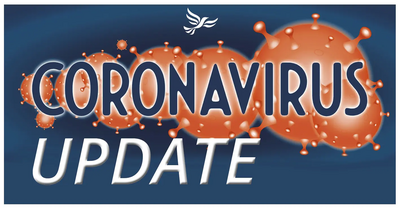UK lagging "well behind" other European countries when it comes to rights relating to sick pay

Workers will get statutory sick pay from the first day off work, not the fourth, to help contain coronavirus, says PM but the UK's SSP is lagging "well behind" other European countries.
Today the Chancellor announced significant levels of financial support to businesses to get them through the Coronavirus outbreak. Business rate relief and small grants are welcome, as are loans which will need to be paid back with interest.
It remains to be seen however what happens to the thousands of self employed workers, those on zero hours contracts many of whom are having to make hard choices about following the Government's advice to self isolate and not get paid or continuing to work. Whilst mortgage relief holidays (already negotiable with lenders) is fine for those buying but who is helping those who rent?
Boris Johnson has said people who self-isolate are helping to protect others from the virus and should not be "penalised for doing the right thing". The change to the waiting days, which is being introduced in emergency legislation, is expected to mean an extra £40 for people receiving SSP. In order to receive statutory sick pay (SSP) however people must be earning at least £118 a week which the TUC said means that two million workers do not earn enough to qualify.
Britain's statutory sick pay rate is just £94.25 a week, on average covering just 20 per cent of a workers' income however the latest figures published by the European Commission show the UK is lagging "well behind" other European countries when it comes to rights relating to sick pay and self-isolation.
The figures published by the EU show the UK second from bottom in the league table of member states, with only Malta providing a lower level of support to ill workers.
Mirror online reports that, The trade union Prospect, representing professionals including engineers, scientists, managers and civil servants, are warning that many sick pay policies in the UK won't cover situations where staff are forced to take two weeks off work, despite the government asking them to pay. Many people are faced with the impossible choice of either following the government's advice or getting paid.
According to Business Secretary Alok Sharma. Workers affected by coronavirus who are not eligible for sick pay may be able to claim Universal Credit.
AIt this comes after Conservative MP Pauline Latham, for Mid Derbyshire has, according to The Independent been forced to apologise after she told a constituent worried about the low level of statutory sick pay available during the coronavirus outbreak to "get a life". Ms Latham was asked on Twitter whether the current level of statutory sick pay of £94 a week was enough to live on - prompting the short and disparaging reply.
TUC General Secretary Frances Grady said, Countries like France, the Netherlands and Sweden already have clear and fair systems in place so that nobody doing their civic duty will be out of pocket. The UK government has so far refused to confirm what it will do in these circumstances. "Workers need clarity from their employers that if they self-isolate they will not lose out,
Sick Pay for workers around Europe
Denmark - Weekly sick pay works out at around ~€550 in Denmark. After 14 days, the local authority pays instead of the employer, at a rate of 90% of the worker's salary - which, based on the average salary, is actually above that threshold. Source
Holland - Sick leave pay of 70% of the worker's pay is the minimum in Holland, and is paid for up to two years. Source
France - The law was changed recently a month ago to make it clear to employers than anyone who was self-isolating under government advice qualifies for sick leave.Workers receive 50% of your salary after 3 'waiting' days in France, - with a figure based on the average French salary Source
Netherlands - Employers cannot force workers to use holiday leave if they are in isolation and must continue to pay them as normal. Sick leave pay of 70% of the worker's pay is the minimum in Holland, and is paid for up to two years.
Sweden -Sick pay equates to 80% of annual income paid for two weeks by your employer and, beyond that, by the 'Swedish Social insurance Agency'. it is an employers' responsibility not only to minimise the spread of any infection, and they must pay them whether or not they can carry out work if asked to self-isolate. Source
Spain - Employees receive 60% of your salary up to the fifteenth day of sickness, and 75% thereafter. Some Spanish employers supplement Social security during sick leave to match the full salary. A salaried employee who is self-isolating under the advice of authorities is entitled to the same sick leave cover as they would usually get - regardless of whether they are in fact ever diagnosed with the coronavirus. Source
Norway - First 16 days of sick leave in Norway are paid for by your employer, and then you're covered by the Government for up to 52 weeks - all as your full salary Source
Sources: Mirror online 3/3/20 Oliver Milne Political Correspondent
https://en.wikipedia.org/wiki/List_of_European_countries_by_average_wage
Sick pay in Europe Wikipedia
Vouchercloud Guides on Sick Pay
Image: MISSOC Mutual Information System on Social Protection

END
